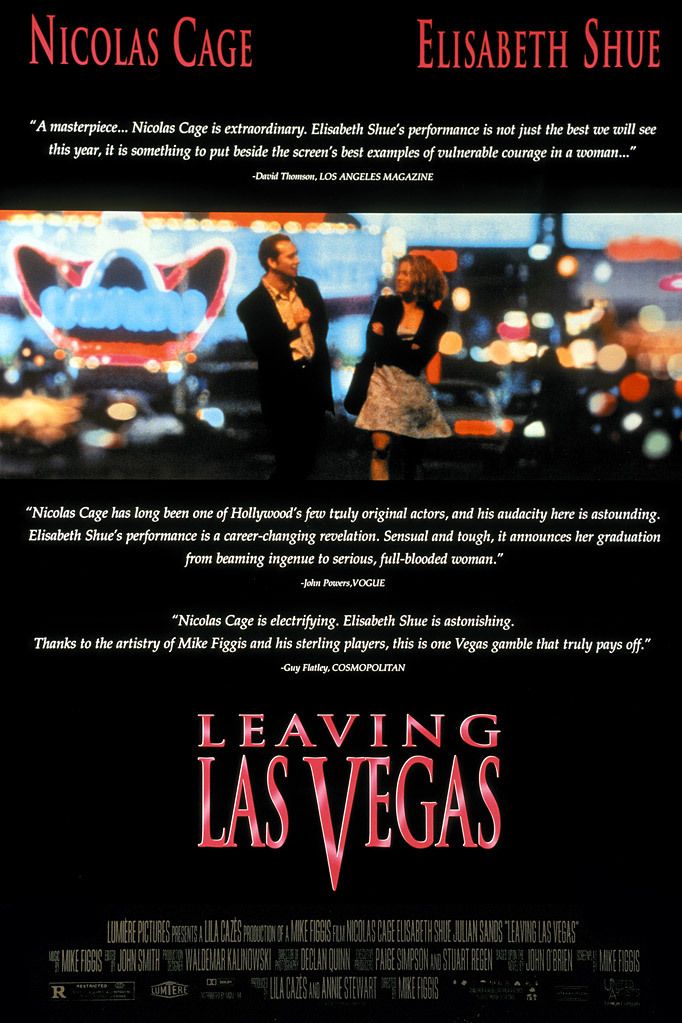Now one of Hollywood’s most iconic actors, Cage seems to regard his lost paycheck as water under the bridge.
THE BIG PICTURE
Nicolas Cage’s Oscar-winning role as alcoholic screenwriter Ben Sanderson in Leaving Las Vegas remains one of his best.
Despite winning an Oscar for his performance, Cage was never paid his $100,000 fee.
Despite further financial setbacks later in his career, Nicolas Cage has continued to deliver passionate performances in diverse roles across a variety of genres.
With more than 100 acting credits to his name, Nicolas Cage is one of Hollywood’s most recognizable and hard-working performers. Since his debut in 1982’s Fast Times at Ridgemont High, he’s appeared alongside some of the industry’s biggest stars, and under the direction of some of its most renowned directors, in a prolific career that’s seen all manner of ups and downs.
From critical darlings and box office hits to comical misfires and direct-to-video schlock, Cage has dabbled in just about every kind of film imaginable, ultimately amassing a body of work that’s raked in more than $6 billion worldwide.
The actor has also garnered attention for a history of financial woes that dethroned him as one of Hollywood’s highest-paid and most-bankable actors, but perhaps a lesser-known fact is that Cage was never paid for one of his best, and Oscar-winning, roles as Ben Sanderson in Leaving Las Vegas.

Ben Sanderson, a Hollywood screenwriter who lost everything because of his alcoholism, arrives in Las Vegas to drink himself to death. There, he meets and forms an uneasy friendship and non-interference pact with prostitute Sera.
What Is ‘Leaving Las Vegas’ About?
Based upon the late John O’Brien‘s semi-autobiographical 1990 novel of the same name, Leaving Las Vegas centers on the doomed affair between Ben (Nicolas Cage) and Sera (Elisabeth Shue), an alcoholic screenwriter and sex worker, respectively.
Despairing and suicidal after losing his family and job, Ben abandons his possessions, liquidates his assets, and travels from Los Angeles to Las Vegas with the intention of drinking himself to death.
Upon crossing paths with Sera, whose grim reality working under Latvian pimp Yuri (Julian Sands) has her at a crossroads, the two lost souls develop a friendly rapport that evolves into an increasing downward spiral.

Cage’s career could’ve looked incredibly different.
Uncompromising, powerfully-acted, but not without moments of tenderness and levity, Leaving Las Vegas is a bleak exploration of self-destruction.
Critically lauded and grossing nearly $50 million on a shoestring budget, the 1995 film received four Oscar nominations, including Best Actor for Cage, Best Actress for Shue, and Best Director and Best Adapted Screenplay for director Mike Figgis, with Cage taking home the film’s sole accolade for his performance.
According to The Hollywood Reporter, however, the actor’s compensation for playing Ben Sanderson would be limited to a golden statuette.
Nicolas Cage Wasn’t Paid His $100,000 Fee for ‘Leaving Las Vegas’








There may be few things that could make up for an actor not being paid his $100,000 fee, but winning an Oscar is arguably one of them. Garnering such recognition would be a dream come true for a performer or craftsperson of any trade, especially for someone receiving his or her first nomination.
Nominated alongside Anthony Hopkins, Sean Penn, Richard Dreyfuss, and Massimo Troisi, Nicolas Cage was in talented company when he emerged victorious in 1996’s Best Actor race. Taking the stage to accept his award, he announced with humility, “Oh, boy. $3.5 million budget, some 16mm film stock thrown in, and I’m holding one of these. I know it’s not hip to say it, but I just love acting.”
He may have received Hollywood’s highest honor, but Nicolas Cage’s paycheck for Leaving Las Vegas would never arrive in the mail. Per Mike Figgis, one of the film’s financial backers, Lumiere Pictures, not only withheld Cage’s payment, but the director’s $100,000 fee as well.
“They said the film never went into profit,” says Figgis, a curious claim considering Leaving Las Vegas‘ impressive box office haul on a mere $3.5-4 million budget. But Figgis harbors no ill will over being slighted. “Whatever. I mean, my career then took off again, and the next film I did, I got really well paid,” he admits. “And within a year Nic was earning $20 million a film, so that was quite good.”
Putting up a fuss over $100,000 after winning an Oscar and going on to become one of Hollywood’s highest-paid actors could be perceived as petty. Like Mike Figgis, Nicolas Cage appears to have regarded not being paid for Leaving Las Vegas as water under the bridge when considering the doors that opened as a result of the acclaim he’d received.
According to the director, Cage put his heart and soul into the role, working thanklessly in service of the film’s limited production resources and his character, with Figgis noting that “he bankrolled the preproduction essentially in the sense that he took a suite at the Chateau Marmont for us to rehearse — he rehearsed by getting drunk every night so he could get in the mode.” Unfortunately for the actor, getting stiffed on Leaving Las Vegas wouldn’t be the last time he’d run into trouble with money.
Nicolas Cage Faced Financial Setbacks Later in His Career
Winning an Oscar can do creative and monetary wonders for one’s career, and Nicolas Cage is no exception. After Leaving Las Vegas, the A-lister starred in several hits, including The Rock, Con Air, and Face/Off, each of which scored big at the box office and turned Cage into a bona fide action star.
His hot streak continued into the 2000s with a second Oscar nomination for his performance in Adaptation, but the actor’s run of good fortune hit a roadblock when financial turmoil struck. “I was over-invested in real estate,” Cage revealed on 60 Minutes. “The real estate market crashed, and I couldn’t get out in time.”
Owing $6 million, he refused to file for bankruptcy and opted instead to work off his debt by appearing in as many films as he could, regardless of quality. Well-aware that he was taking some roles that may have been unthinkable at an earlier time in his career, Cage maintained his sense of integrity and enthusiasm.
“Even if the movie ultimately is crummy, they know I’m not phoning it in, that I care every time.” True to his word, the actor continues taking on roles that challenge, delight, and inspire him, turning in stellar performances in lesser-known films like Joe, Mandy, and Pig, and exploring various genres in a way that keeps audiences guessing as to what else he has up his performative sleeve.